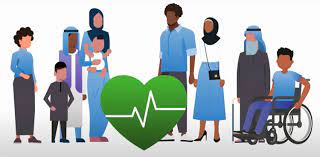Health misconceptions that have permeated popular culture are easy to believe in this day of information overload. These false beliefs may cause unwarranted anxiety, poor health decisions, and even possibly dangerous interventions. So let’s dispel some of the most widespread health myths and show you what the real story is:
Myth 1: Being outside in the cold causes you to get sick.
Truth: Viruses, not the actual weather, are what cause colds. Your immune system may be slightly weakened by cold temperatures, but being exposed to them does not spread the infection. The main offenders are those who come into close contact with diseased people or who touch contaminated surfaces.
Myth #2: Arthritis is caused by cracking your knuckles.
Truth: Gas bubbles escaping from the synovial fluid in your joints generate the popping sound that occurs when your knuckles crack. While extreme force or repetitive cracking can irritate the joints and produce temporary discomfort, there is no conclusive evidence to link this activity to arthritis.
Myth #3: Children that eat sugar become hyperactive.
Truth: Although sugar can cause mood swings and energy dips, it is not the primary cause of children’s hyperactivity. Research has not consistently shown a connection between consumption of sugar and higher levels of activity. More important factors include sleep deprivation, underlying behavioral disorders, and environmental stressors.
Myth #4: Eight glasses of water a day are required.
Truth: While eight glasses may be a reasonable general rule of thumb, each person’s demands for water differ based on their food, activity level, and environment. To stay properly hydrated, pay attention to your body’s thirst signals and give priority to foods high in water, such as fruits and vegetables.
Myth #5: Your body gets rid of pollutants through detoxification and cleansing.
Truth: The liver, kidneys, and intestines make up your body’s effective cleansing mechanism. Waste materials and poisons are naturally filtered out by these organs. It’s not shown that detox diets remove any more toxins than your body naturally eliminates, even if they may encourage weight reduction since they restrict calories.
Myth #6: Reading in low light damages your eyes.
Truth: While reading in low light can temporarily strain your eyes, it won’t harm them permanently. On the other hand, headaches and eye fatigue may be exacerbated by bad posture and prolonged screen usage. When using an electronic device or reading, make sure there is adequate lighting, take rests, and keep your posture straight.
Myth #7: Acne is caused by eating dairy.
Truth: Although some people are more sensitive than others, most people do not have solid proof that dairy causes acne. Stress, hormones, and heredity are more important in the development of acne. But it’s better to talk to your doctor or a certified nutritionist if you experience any worsening of acne after eating dairy.
Myth No. 8: Prozac makes you happy.
The truth is that antidepressants don’t make you feel happy. They function by controlling neurotransmitters in the brain, which can help lessen depressive symptoms including anxiety, hopelessness, and melancholy. Even while they might not immediately lead to happiness, they can improve people’s quality of life and provide a better basis for them to feel good.
Myth #9: Cancer is caused by radiation from cell phones.
The truth is that radiation from mobile phones is classified as non-ionizing radiation, which has a lot less energy than ionizing radiation, which is known to cause cancer. Although research on long-term exposure to mobile phone radiation is ongoing, there is currently no evidence linking this exposure to the development of cancer. Nonetheless, it’s always a good idea to use your phone responsibly by limiting screen time and avoiding holding it up to your ear for long periods of time.
Myth #10: Calorie counting is a requirement for weight loss.
Truth: There are other ways to lose weight outside calorie monitoring, even if it can be a useful tool. Healthy weight loss without calorie counting is possible by emphasizing whole, unprocessed foods, cutting back on sugar and processed carbohydrates, and embracing a sustainable lifestyle that includes regular physical activity.
Recall that being informed is the first step towards taking charge of your health. You may take clear and confident decisions regarding your health and well-being by dispelling these widespread misconceptions and getting trustworthy advice from medical experts.
Bonus Advice: Exercise caution when trusting information from anecdotal or social media sources. For accurate and scientifically supported health advice, always consult your physician or credible medical resources such as the World Health Organization.
A route to a happier and more satisfying life can be unlocked by remaining informed and making wise decisions.
Credits: NORXPHARMAUSA & USMEDSPHARMA



